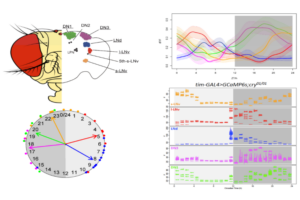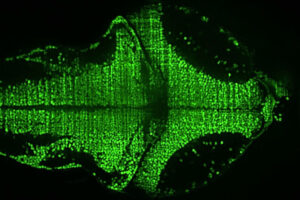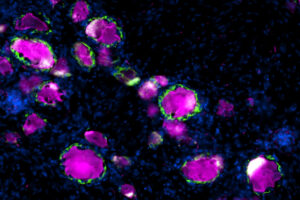Li’s research will investigate the link between maternal immune activation during fetal development and the development of neurological disorders.
Tristan Qingyun Li receives Brain & Behavior Research Foundation grant


Li’s research will investigate the link between maternal immune activation during fetal development and the development of neurological disorders.

The Neuroscience Research Building’s 11 stories have been framed and siding installation has begun.

The project aims to answer a fundamental question in neuroscience: how do olfactory cues direct behavior?

From circadian rhythms in Drosophila to feeding and mating in mosquito, Duvall is revealing the inner workings of insect behavior—and how to manipulate it.

The Zhao Lab is grateful for ICTS, GTAC@MGI, Knight ADRC, and the Movement Disorders Center for their generous support.

“This is an occasion for gratitude, immense gratitude.”

The slow and fast rhythms reflect distinct cellular processes yet nevertheless have a co-phasic relationship.

Evans led the Department of Neuroscience business office since 2010. Mellie Euler, special project administrator, is also retiring after 20 years in the department.

In collaboration with labs from Caltech and the University of Southern California, his team will track each cell in the zebrafish brain to document the biological basis of sleep.

SGCs have been the subject of intense scrutiny for their involvement in inflammation, pain and nerve injury. The results confirm that rodents are a reliable model for translational research on these cells.